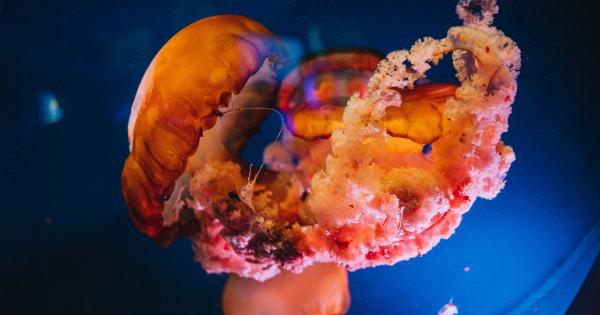Anorexia nervosa, commonly known as anorexia, is an eating disorder characterized by the relentless pursuit of extreme weight loss and a distorted body image.
It affects people of all ages, genders, and backgrounds, and can have severe physical and psychological consequences. When anorexia takes over someone’s life, the impact is not limited to the individual alone; everyone surrounding them pays a heavy price.
The Physical Toll
Anorexia takes a devastating toll on the physical health of those who suffer from it. Severe weight loss, malnutrition, and starvation deprive the body of essential nutrients, leading to a range of health problems.
The lack of proper nourishment affects the functioning of various organs and systems, causing cardiovascular complications, weakened bones, compromised immune system, and hormonal imbalances.
Furthermore, the body’s natural defense mechanisms kick in during a state of starvation, leading to muscle wasting, slowed metabolism, and decreased energy levels.
This further perpetuates the cycle of extreme weight loss and reinforces the anorexic behaviors.
The Emotional Turmoil
While anorexia primarily manifests as an eating disorder, it is deeply rooted in emotional distress. Individuals with anorexia often struggle with low self-esteem, perfectionism, distorted body image, and intense fear of gaining weight.
These feelings of inadequacy and self-doubt can lead to a vicious cycle of self-punishment and self-deprivation.
As anorexia progresses, individuals become consumed by obsessive thoughts about food, weight, and body shape. Their lives revolve around strict eating patterns, rigorous exercise regimens, and constant monitoring of their appearance.
This hyperfocus on weight loss and food becomes a significant source of stress, anxiety, and isolation.
Moreover, anorexia significantly impacts relationships. Friends and family members often feel helpless and frustrated as they witness their loved one’s physical and emotional deterioration.
Communication may break down, and trust may be eroded, as an individual with anorexia becomes increasingly withdrawn, secretive, and defensive. The emotional toll on both the individual with anorexia and their loved ones can be overwhelming and long-lasting.
Financial Burden
Dealing with anorexia comes with significant financial burdens. Medical treatments, therapy sessions, nutritional counseling, and medications can be costly, especially when the disorder has progressed to a critical stage.
Frequent hospitalizations and specialized care further contribute to the financial strain.
Additionally, anorexia may lead to a decline in work or academic performance for both the individual and their caregivers.
The preoccupation with weight loss and related rituals often takes priority over other responsibilities, potentially leading to academic failure, loss of employment, and reduced earning potential. The combined impact of medical expenses and lost income can have long-term financial consequences for the individual and their family.
Social Implications
Anorexia not only isolates the individual physically but also socially. As the disorder progresses, individuals may begin to withdraw from social activities, gatherings, and relationships.
The obsession with weight and body shape can make it challenging to engage in activities involving food, leading to further isolation and feelings of loneliness. This social disconnection can have significant implications on an individual’s overall well-being and their ability to form and maintain meaningful connections and support systems.
Additionally, the pervasive influence of media and societal pressures when it comes to appearance and body ideals contributes to the development and perpetuation of anorexia.
Our society’s preoccupation with thinness and unrealistic beauty standards magnifies the internal struggles faced by individuals with anorexia and can make recovery exponentially more challenging.
The Role of Education and Prevention
Education and prevention play a crucial role in combating the devastating impact of anorexia.
By fostering awareness, promoting body positivity, and challenging societal norms, we can create a more supportive environment for those who may be susceptible to or currently battling anorexia. Increased access to mental health resources, early intervention, and effective treatment options can make a significant difference in saving lives and minimizing the lasting effects of this disorder.
Support and Recovery
Recovery from anorexia is a complex and challenging process that requires professional help, a strong support system, and dedication. It is essential to seek specialized treatment from healthcare professionals experienced in eating disorders.
Individual therapy, nutritional counseling, and family therapy are proven treatment modalities that can aid in the recovery journey.
Building a robust support network is vital for individuals with anorexia. Friends and family members can provide crucial emotional support and understanding during this challenging time.
Support groups and online communities also offer a safe space for individuals with anorexia to connect, share experiences, and find solace in knowing they are not alone.
Conclusion
Anorexia is a devastating eating disorder that impacts not only the individual suffering from it but also their loved ones and society as a whole.
The physical, emotional, financial, and social tolls can be profound, often requiring a comprehensive and long-term approach to recovery.
However, with increased awareness, early intervention, accessible treatment options, and strong support systems, it is possible to overcome anorexia and facilitate the healing process.
By recognizing the impact of anorexia on everyone involved, we can work towards creating a society that supports mental health, promotes body acceptance, and fosters holistic well-being.































